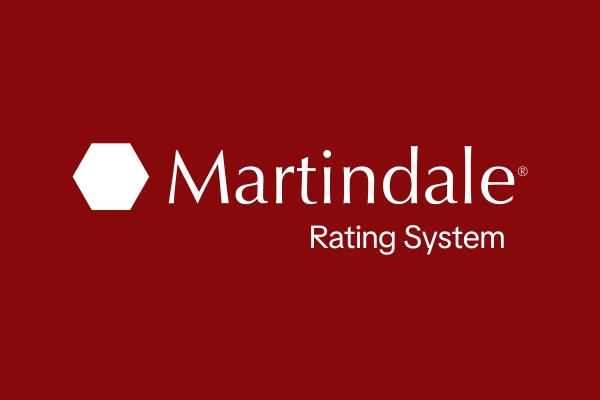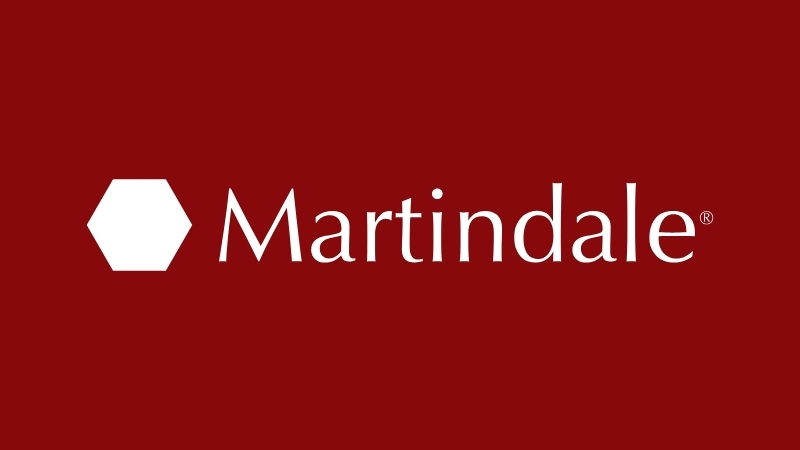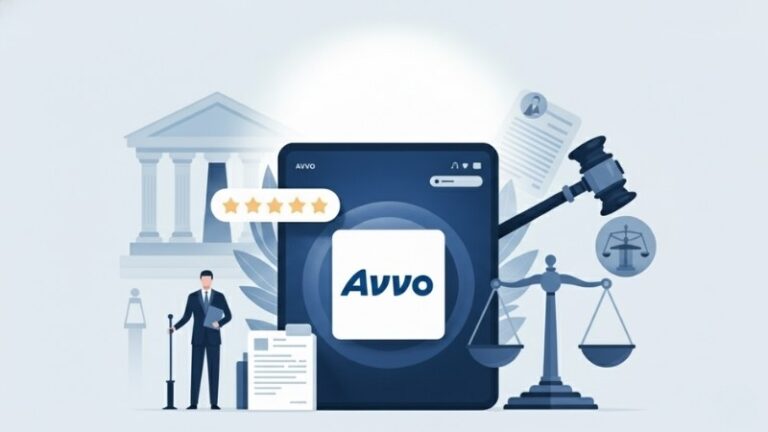Is Martindale-Hubbell Worth It? A Complete Guide for Lawyers
Since its founding in 1868, Martindale-Hubbell has profiled more than a million lawyers and law firms, becoming one of the oldest and most recognized names in the legal community. Its peer review ratings, including the prestigious AV rating, have long been viewed as a mark of professional excellence and credibility in the legal industry.
But times have changed. Today, prospective clients are more likely to look at online reviews, search engines, or legal directories like Avvo when deciding on a lawyer or law firm. This shift raises an important question for attorneys seeking visibility and credibility: Is Martindale-Hubbell still worth it in a digital-first era?
In the next sections, we’ll peel back the layers of this long-standing rating system to see where it shines, where it falls short, and how it fits into modern legal marketing.
What is the Martindale-Hubbell Rating System?

The Martindale-Hubbell rating system is a peer review-based process that evaluates attorneys on two pillars: legal ability and ethical standards.
Unlike other rating systems that rely heavily on online reviews or search engines, Martindale-Hubbell uses peer evaluations from other lawyers and law firms, making it more of a professional reputation benchmark within the legal community. It is often seen as a trusted measure of professional excellence in the legal industry.
The most recognized Martindale-Hubbell ratings include:
- AV Preeminent Rating: The highest distinction, representing exceptional legal ability and professional ethics.
- BV Distinguished Rating: A strong rating, typically earned by mid-career attorneys who have demonstrated credibility and sound legal knowledge.
- CV Rating: Awarded to newer attorneys or law firms who are establishing their reputation and meeting the minimum threshold of professional standards.
Historically, the Martindale-Hubbell peer review system offered six distinct ratings:
- AV: Very high legal ability and ethical standards
- A: High legal ability
- BV: Good legal ability and very high ethics
- B: Good legal ability
- CV: Fair legal ability and very high ethics
- C: Fair legal ability
The AV rating has long been regarded as the highest rating in the Martindale-Hubbell law directory, serving as a visible badge of professional reputation that attorneys proudly display on their Martindale profile.
What separates Martindale-Hubbell from other attorney ratings platforms is its reliance on peer reviews, peer references, and confidential opinions from other attorneys. While client review ratings, average client ratings, and online reviews on platforms like Avvo or Google help prospective clients make hiring decisions, Martindale-Hubbell ratings focus squarely on peer evaluations.
This peer review process continues to carry weight in the legal field, particularly among attorneys seeking recognition from the broader legal community and maintaining professional relationships with other lawyers.
Why Martindale-Hubbell Ratings Are Important?
A Martindale-Hubbell rating is more than just a line on a lawyer’s profile. Within the legal community, it acts as proof that peers have recognized your legal ability, ethical standards, and professional reputation.
The review rating comes from other attorneys and law firms who understand the demands of the legal profession, making it a respected measure of credibility.
For attorneys and law firms, these ratings matter because they function as:
- A mark of professional excellence: An AV Preeminent rating highlights exceptional legal knowledge, analytical capabilities, and ethical conduct.
- A trust signal for potential clients: While prospective clients may not know every detail of the Martindale-Hubbell rating system, they understand that a high score adds reassurance when choosing legal representation.
- A competitive advantage: In crowded practice areas, attorney ratings help differentiate a lawyer or law firm and influence hiring decisions.
The benefits extend beyond client perception. Peer review ratings can strengthen professional relationships with other attorneys, often leading to referrals, collaborations, and business development opportunities.
Attorneys with strong Martindale ratings are more likely to connect with peers who share similar professional standards, building networks that enhance both reputation and opportunity.
While online reviews on platforms like Google may capture more consumer attention, Martindale-Hubbell remains highly respected within the legal industry. For attorneys seeking to demonstrate professional excellence and credibility in the legal field, a strong Martindale rating continues to carry weight.
Limitations and Criticisms of Martindale-Hubbell
Martindale-Hubbell ratings carry prestige, but they aren’t perfect. Here are a few drawbacks to keep in mind if you’re deciding whether it fits your practice.
- Limited reach: Ratings are mostly viewed by peers in the legal community, not everyday clients searching on Google. Platforms like Avvo, Justia, and online reviews often influence prospective clients more.
- High cost: Keeping a profile active can be pricey, especially for solo practitioners or small law firms where budgets are tight.
- Peer bias: Because the peer review process relies on feedback from established attorneys, younger lawyers may struggle to earn recognition early in their careers.
- Lack of transparency: The rating system and review process are not always clear, leaving some attorneys questioning how their rating score is calculated.
- Modern competition: With so many legal directories and review sites available, a single rating system is no longer enough to shape a lawyer’s reputation.
For attorneys and law firms, this raises a bigger question: is the prestige within the legal community worth the investment, or are resources better spent on visibility strategies that directly reach potential clients?
How Lawyers Can Improve Their Martindale-Hubbell Rating?

Raising your Martindale-Hubbell rating comes down to consistency and credibility. The system is built on peer reviews and professional standards, so attorneys need to focus on how they present themselves to both peers and clients.
Here are strategies that can make a difference:
- Complete your profile with accurate details about practice areas, achievements, and qualifications. A well-documented Martindale profile strengthens credibility.
- Gather peer references from judges, colleagues, or opposing counsel who can vouch for your legal ability and ethical standards.
- Protect your record by avoiding disciplinary issues. Even small infractions can lower a lawyer’s legal ability rating or general ethical standards rating.
- Increase visibility among peers through bar association work, legal publications, and speaking engagements. The more active you are in the legal community, the stronger your professional reputation becomes.
- Stay proactive by checking that reviews are processed. Martindale-Hubbell notes that client reviews and comments typically appear within 24 hours of submission.
- Respond to negative reviews with professionalism. Addressing criticism constructively shows both peers and potential clients that you take ethical conduct and client satisfaction seriously.
Improving a rating is not about quick fixes. It is about showing professional excellence over time, reinforcing trust with other lawyers, and maintaining high standards in legal representation.
How to Request Martindale-Hubbell Peer Reviews?
The Martindale-Hubbell rating system depends entirely on peer evaluations, not client reviews. That means attorneys looking to improve their rating must actively nominate peers who can provide confidential opinions on their legal ability, professional ethics, and overall reputation.
The process may seem technical, but it follows a clear structure.
1. Access the Peer Reference Nomination Tool
- Non-subscribed firms: Contact Martindale-Hubbell’s Customer Support team to request access. They will provide the peer reference nomination tool via email.
- Subscribed firms: Log in to the Client Service Center (CSC) through Lawyers.com or Martindale.com using your credentials. From the dashboard, navigate to the “Ratings > Peer Review” section.
2. Submit Your References
Choose attorneys or judges who:
- Have been admitted to the bar for at least three years
- Are listed in the Martindale-Hubbell database
- Have professional experience working with you, whether as colleagues, opposing counsel, or within the same legal community
Finalize your list using the “Manage References” option inside the system.
3. Peer Review Process
Once submitted, Martindale-Hubbell contacts your nominated peers and sends them a confidential survey.
These surveys ask about legal ability, ethical conduct, communication ability, and overall professional qualifications. Their responses are verified and then factored into your Martindale-Hubbell rating score.
4. Focus on Credibility
Because the Martindale-Hubbell rating system does not incorporate client review ratings, attorneys should prioritize nominating respected peers with firsthand knowledge of their legal services and ethical standards.
Strong peer references increase the likelihood of earning higher distinctions, such as the AV Preeminent rating.
Is Martindale-Hubbell Worth It in 2025?
For more than a century, attorneys have looked to Martindale-Hubbell as a trusted marker of professional excellence. But in 2025, when prospective clients often rely on search engines and online reviews to make hiring decisions, the question remains: Does this rating system still hold real value?
The answer depends on your goals.
- Worth the investment if you are an established lawyer or law firm aiming for prestige within the legal community. A strong Martindale-Hubbell peer review rating, especially the AV Preeminent rating, can strengthen professional relationships, boost referral opportunities, and showcase ethical conduct and legal ability to other attorneys.
- Less impactful if your main focus is consumer-facing visibility. For attracting potential clients, client review ratings, Google reviews, and other rating systems like Avvo often carry more influence.
One important detail: if an attorney disagrees with their Martindale-Hubbell rating, there is a process to challenge it. By providing additional peer references or requesting a review, lawyers can ensure their rating score more accurately reflects their professional qualifications and ethical standards.
Ultimately, Martindale-Hubbell is most effective when paired with broader strategies. Attorneys seeking both peer recognition and client acquisition will see better results by combining their Martindale profile with effective digital marketing methods such as SEO, PPC campaigns, and consistent client reviews. In other words, the rating system is valuable, but it should be part of a multi-channel strategy and not the only measure of reputation.
Build a Reputation Beyond Ratings with Boba Digital
Martindale-Hubbell ratings highlight professional excellence, but prestige alone won’t bring clients through the door. In the digital-first legal industry, potential clients often rely on search engines, client reviews, and online presence when choosing an attorney. That means a strong peer review rating should be paired with a strategy that makes your firm visible where it matters most.
Boba Digital helps law firms take that next step. Our team boosts online visibility with SEO and local optimization, runs targeted Google Ads campaigns that generate qualified leads, and strengthens credibility across Avvo, Google, and Martindale-Hubbell profiles. The result is a balanced reputation that is respected among peers and trusted by prospective clients.
If you’re ready to grow your client base and turn recognition into measurable results, partner with Boba Digital and build a digital presence that works as hard as you do.







